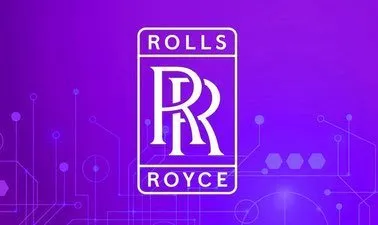
Agile Mindset Introduction 
This course introduces the concept of an agile mindset, which encourages learning, adaptation to change, and continuous improvement through feedback and learning from mistakes. It is a mindset that values growth and development. ▼
ADVERTISEMENT
Course Feature
![]() Cost:
Cost:
Free
![]() Provider:
Provider:
Edx
![]() Certificate:
Certificate:
No Information
![]() Language:
Language:
English
![]() Start Date:
Start Date:
11th May, 2020
Course Overview
❗The content presented here is sourced directly from Edx platform. For comprehensive course details, including enrollment information, simply click on the 'Go to class' link on our website.
Updated in [March 06th, 2023]
This course provides an introduction to the agile mindset and how it is being implemented and fostered across Rolls-Royce. Participants will learn about the concept of ‘Doing Agile’ and ‘Being Agile’, and how to foster an agile culture in an organization. The course will also cover the importance of embracing a mentality or approach that believes in adapting to change, learning through failures and encouraging feedback to bring in consistent improvement. Participants will gain an understanding of how to drive change in behavioral norms to develop an agile mindset.
[Applications]
After this course, participants can apply the agile mindset to their own organizations by encouraging feedback, learning from failures, and adapting to change. They can also foster an agile culture by driving change in behavioral norms and developing an agile mindset. Additionally, they can use the course to introduce an agile mindset to their colleagues and peers.
[Career Paths]
The career paths recommended to learners of this course are:
1. Agile Project Manager: Agile project managers are responsible for leading and managing agile projects, ensuring that the project is completed on time and within budget. They must be able to effectively communicate with stakeholders, manage resources, and ensure that the project is completed according to the agile methodology. The demand for agile project managers is increasing as more organizations adopt agile methodologies.
2. Agile Coach: Agile coaches are responsible for helping teams and organizations adopt and implement agile methodologies. They provide guidance and support to teams, helping them to understand and apply agile principles and practices. Agile coaches must have a deep understanding of agile principles and be able to effectively communicate and collaborate with teams.
3. Agile Business Analyst: Agile business analysts are responsible for analyzing business requirements and developing solutions that meet those requirements. They must be able to effectively communicate with stakeholders, understand the business needs, and develop solutions that are aligned with the agile methodology.
4. Agile Software Developer: Agile software developers are responsible for developing software applications using agile methodologies. They must be able to effectively collaborate with other developers, understand the requirements, and develop software that meets those requirements. The demand for agile software developers is increasing as more organizations adopt agile methodologies.
[Education Paths]
The education paths recommended to learners of this course are:
1. Bachelor's Degree in Agile Project Management: This degree program provides students with the knowledge and skills needed to effectively manage projects using agile methodology. Students will learn how to plan, execute, and monitor projects using agile principles and techniques. They will also gain an understanding of the principles of agile project management, including how to use agile tools and techniques to manage projects. Additionally, students will learn how to develop and maintain an agile mindset and culture within their organization.
2. Master's Degree in Agile Software Development: This degree program provides students with the knowledge and skills needed to develop software using agile methodology. Students will learn how to design, develop, and deploy software using agile principles and techniques. They will also gain an understanding of the principles of agile software development, including how to use agile tools and techniques to develop software. Additionally, students will learn how to develop and maintain an agile mindset and culture within their organization.
3. Master's Degree in Agile Leadership: This degree program provides students with the knowledge and skills needed to lead teams using agile methodology. Students will learn how to lead teams using agile principles and techniques. They will also gain an understanding of the principles of agile leadership, including how to use agile tools and techniques to lead teams. Additionally, students will learn how to develop and maintain an agile mindset and culture within their organization.
4. Doctoral Degree in Agile Transformation: This degree program provides students with the knowledge and skills needed to transform organizations using agile methodology. Students will learn how to plan, execute, and monitor organizational transformation using agile principles and techniques. They will also gain an understanding of the principles of agile transformation, including how to use agile tools and techniques to transform organizations. Additionally, students will learn how to develop and maintain an agile mindset and culture within their organization.
The developing trends in these degree paths are the increasing focus on developing an agile mindset and culture, as well as the use of agile tools and techniques to manage projects, develop software, lead teams, and transform organizations. Additionally, there is an increasing emphasis on the importance of continual learning and improvement in order to foster an agile culture.
Course Provider

Provider Edx's Stats at AZClass
Agile Mindset Introduction introduces the concept of agile thinking, which encourages learning, adapting to change, and continuous improvement through feedback and learning from mistakes. Learners can understand the philosophy of agile thinking and how it differs from "doing agile". They will learn how to embrace a mindset or approach that believes in adapting to change, learning from failure, and encouraging feedback to bring about continuous improvement. Learners also learn about the benefits of having an agile mindset, such as how it can help achieve business milestones. They will learn how to foster an agile culture in an organization and how to drive changes in behavioral norms to foster an agile mindset.
Discussion and Reviews
0.0 (Based on 0 reviews)
Explore Similar Online Courses

Predictive Analytics using Machine Learning

Spring Framework: Spring Data JPA with Hibernate

Python for Informatics: Exploring Information

Social Network Analysis

Introduction to Systematic Review and Meta-Analysis

The Analytics Edge

DCO042 - Python For Informatics

Causal Diagrams: Draw Your Assumptions Before Your Conclusions

Whole genome sequencing of bacterial genomes - tools and applications

Lean-Agile Mindset for Leaders

CSM Certification Study Guide - Certified Scrum Master


Start your review of Agile Mindset Introduction